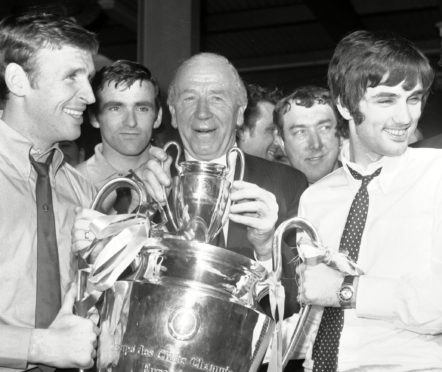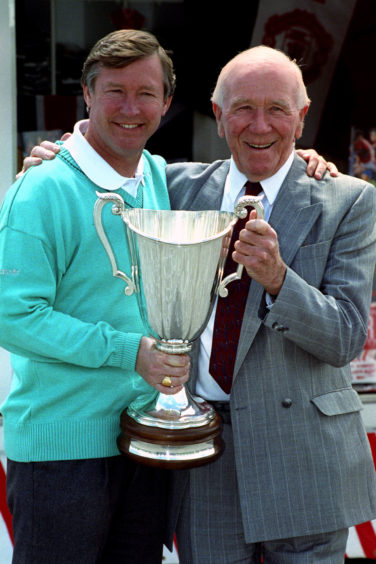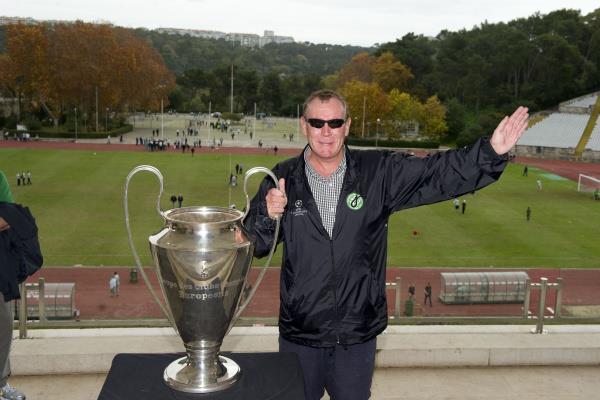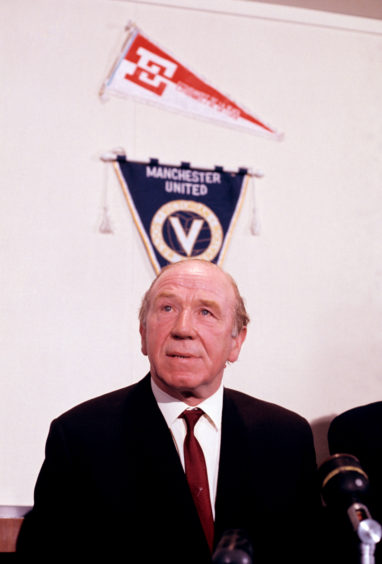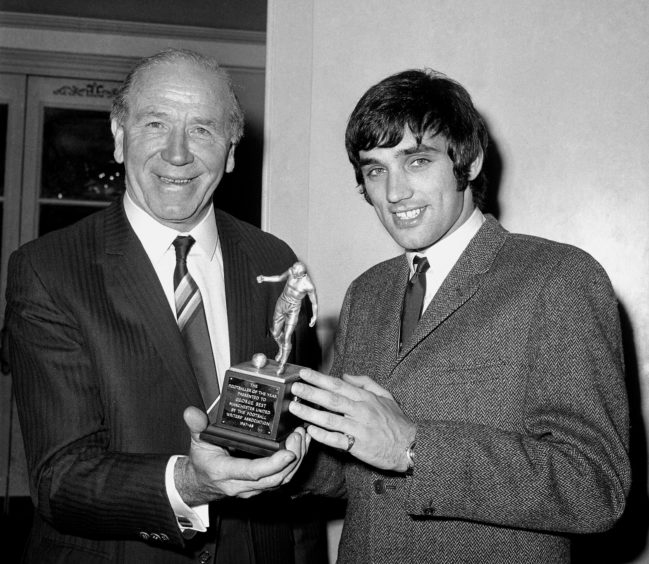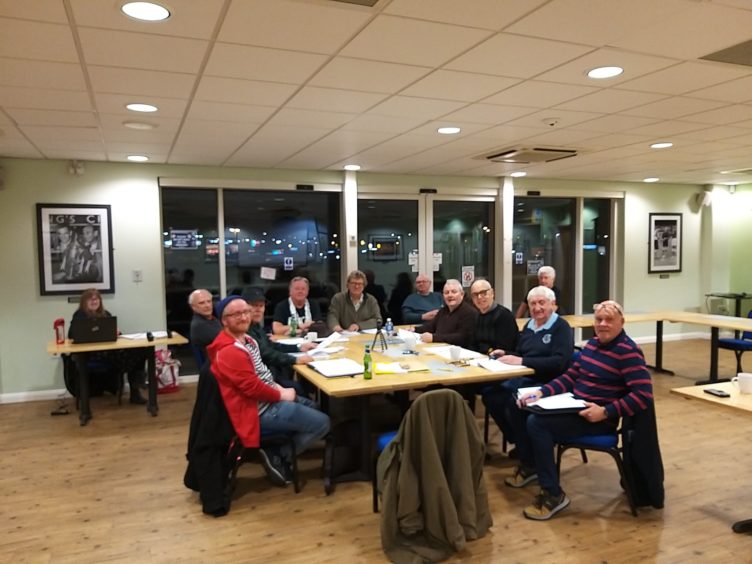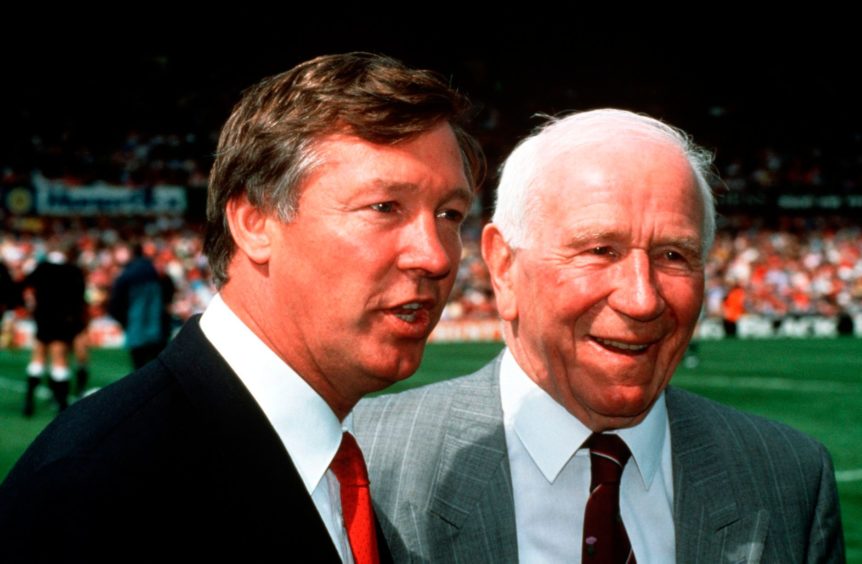He is one of Scotland’s most revered football figures: the man who survived a catastrophic air crash, which killed many of his friends and colleagues, and who spent the rest of his life seeking the best for his beloved Manchester United.
Yet Sir Matt Busby, who is the subject of a new play about a hitherto unrecorded part of his life, was a complex character who didn’t exist in one or two dimensions.
Ruthless
He was passionate about the benefits of sport and eventually entered the pantheon of the game’s immortals after working with the likes of Bobby Charlton, George Best and his compatriot, Sir Alex Ferguson.
But if Busby was often kind and considerate, he could also be ruthless when circumstances demanded and refused to tolerate his players squandering their talent or getting addicted to the lifestyle which erupted during the so-called Swinging Sixties.
Above all, he never forgot the many people who perished in the Munich Disaster in 1958 and was determined to bring United back from the abyss afterwards.
It’s a multi-faceted role which has been taken on by Aberdeen actor, Stephen G Brady, and he told us about the challenges involved in bringing Busby to life.
Mr Brady, who was born and educated in Aberdeen, has appeared in a wide range of TV programmes in recent years, including The Missing, Blue Murder, Jonathan Strange and Mr Norell and Emmerdale.
Now, he has become the protagonist in a drama called Bishop United, which has premiered in the north of England to rave reviews and will be taken on tour across the country after the lockdown restrictions are relaxed.
The narrator of the work is George Courtney, the former World Cup referee who officiated at the 1986 and 1990 tournaments.
But it’s Mr Brady who commands the spotlight as the driven and redoubtable figure who was instrumental in cementing the legend of the “Busby Babes”.
Mr Brady has made his remarkable journey from Aberdeen to Lancashire during a career which has encompassed sport, music, the stage and television.
He said: “I was involved in athletics and cricket at Aberdeen Grammar and Aberdeenshire and loved my time at Mannofield and Dyce and living in the city.
“But I’ve always been interested in acting and I really decided to pursue that after moving to Cheshire in 2000.
“I suppose it has been a strange career route in the last 20 years: when I first moved to England, I played drums in a local pipe band, then I started to appear in more acting roles and it has all built up from there.
“This new play has been written by Roy Cavanagh MBE and Steve Newcomb, and tells the story of how amateur club Bishop Auckland helped out United in the aftermath of the Munich air disaster (which killed 23 people, including many players) in 1958.
“Busby helped so many of those who survived the crash and the way in which he responded to the tragedy is at the heart of this new work.
“It is a big honour to be involved in this production and, coming from Aberdeen, the play has added resonance for me because it was Sir Matt Busby who helped bring Alex Ferguson down to Old Trafford in the 1980s.
“It’s always a challenge when you get involved in portraying somebody who was so well-known and so cherished by the football community.
“But Roy talked to Sir Matt on numerous occasions, he got to know the man behind all the newspaper headlines and he has devised a drama which looks into how Bishop Auckland came to Sir Matt’s and United’s rescue in their hour of need.”
@TonyIncenzo As a supporter of all things football, tonight at 7pm @bishopfm broadcast the podcast from the opening in Feb of play about how the most successful amateur side @bishopafc helped Manchester United in their darkest hour.Available https://t.co/k64RPYrVJ5 click listen pic.twitter.com/m0tV8pZlvx
— Roy Cavanagh MBE (@RoyMBE) April 27, 2020
Mr Brady spoke about his fascination with being offered the task of portraying one of the most redoubtable figures in the canon of British football.
Joy to play
He said: “Sir Matt is a joy to play, especially as I found that he never fully recovered from the horror of Munich and it was there with him for the rest of his days.
“He has always been portrayed as an affable gentleman – and that was certainly true -but there was another side to him, which I learned about and that added extra layers of complexity to the story behind his dealings with Bishop United.
“They were the most successful amateur side in the history of English football and the play is very much about them and how they helped Manchested United when things were in danger of falling apart at Old Trafford.
“With their playing staff totally depleted and the club in dire financial straits, the FA still insisted that they fulfil their fixtures.
“It was a desperate situation, but Bishop Auckland rose to the occasion, loaned them several players, at which point Sir Matt worked tirelessly to cement the bond between the two clubs, and it ended up being one of the smartest moves he ever made.”
Mr Brady and his colleagues have been forced to wait for the resumption of something approaching normal service as they bide their time during the Covid-19 pandemic.
But he revealed the extent of interest there has been from people all across the footballing world – in a testimony to Busby’s enduring mystique and charisma.
Worldwide interest
He said: “We are looking at possible venues in the north of Scotland which are capable of staging the play and the response has been immense in Aberdeen, in Inverness, in Belfast and a whole host of other places who have all been in touch with us.
“We recorded our opening live on February 6 and this has been transmitted several times to critical acclaim and has been screened all over the world in such places as the United States, Canada, Australia and New Zealand.
“Obviously, it has been frustrating that everything has come to a halt in the arts and entertainment world, but we realise there are more important things at the moment.
“That message is doubly poignant because Sir Matt knew it all his life after Munich and it shaped the way he was and explained why he went to Bishop Auckland.”
Sir Alex Ferguson spoke poignantly about the influence of his late friend Sir Matt Busby on the 60th anniversary of the Munich tragedy in 2018.
He said: “On the day of the disaster, I was in the library studying for my exams. I used to train two or three nights a week with Queen’s Park, so after I’d finished my work I went along to the training ground, but when I arrived, people were crying.
“These were grown men. There was a lot of sorrow in the dressing room, so much so that they cancelled training that night.
“It was a really emotional time for anybody who was a football fan. I’m sure the whole public in Manchester felt that way, and Matt Busby carried great resonance for the people in Scotland so it was keenly felt up there too.
“I’d seen Manchester United play in the Coronation Cup in 1953. It was held in Glasgow to mark the Queen’s coronation, and it featured four English teams and four Scottish teams. I went to watch United against Rangers.
“The bulk of the United side was made of the remnants of the 1948 FA Cup winning team – the likes of Jack Rowley, Stan Pearson, Jack Crompton – but outside-left was Roger Byrne, and soon the team was full of young players like Roger.
“The philosophy and belief of producing young players to play for Manchester United was a big thing at the time.
“It takes a brave person to do that. You’re in an industry where it’s all about results, and that’s why most managers have to rely on their first team to keep them in a job.
“To build a football club through young people is the braver thing and the correct thing to do because, once you’ve got a foundation, you can rely on that for a few years.
“Matt never spoke to me about Munich, but he spoke about Duncan Edwards, David Pegg, Eddie Colman and all the boys who passed away. The one who did speak a lot about it was Jimmy Murphy.
“Jimmy did a bit of scouting for me when he first came down and he always spoke very openly about the Babes. He always had a tear in his eye by the end of the discussion because he was a very emotional guy.”
